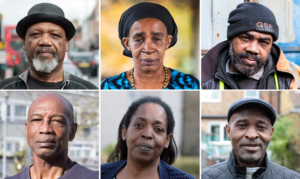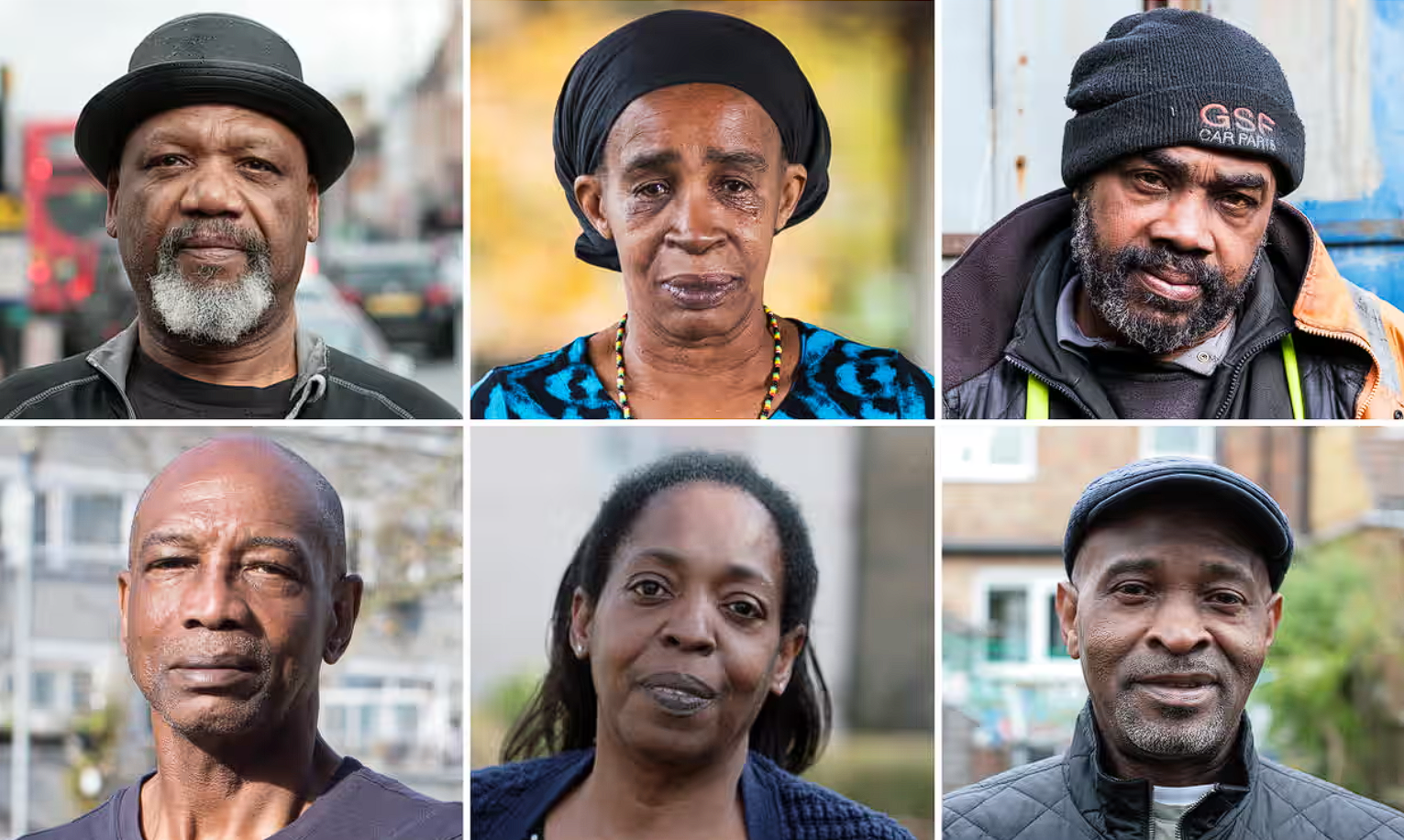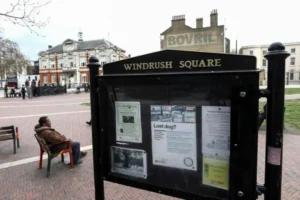Britain’s reputation has been shattered by the cruelty of the government’s immigration policy
For the past six months, the Guardian has highlighted case after case of Home Office brutality towards the Windrush generation, describing how retirement-age citizens who have lived and paid taxes in the UK for decades have been detained, made homeless, sacked or denied benefits and NHS treatment because they have struggled to prove they are British. Seven days ago, the government had barely acknowledged the scandal.
Everything changed this week. In the space of five days, the prime minister was forced to apologise twice for the hurt caused to victims, while the home secretary said she was sorry for the “appalling” actions of her own department and issued a strong rebuke to her staff. Amber Rudd said she was “concerned that the Home Office has become too concerned with policy and strategy and sometimes loses sight of the individual”.
What happened to prompt this sudden admission of culpability? How was it possible for the government to ignore for so long the Guardian’s detailed reports of the tragic problems unleashed on passport-less Windrush-era citizens by Theresa May’s flagship immigration policy, the “hostile environment for illegal migration”, that she launched in 2013 as home secretary?
A series of articles were published in the Guardian, prompting shock from our readers and indifference from the government. We documented the cases of people such as Paulette Wilson, 61 (former kitchen worker at the House of Commons, made homeless, detained and threatened with removal to Jamaica, after 50 years in the UK), Michael Braithwaite, 66 (sacked as a special needs teaching assistant after 56 years in the UK), Hubert Howard, 61 (sacked and unable to visit his dying mother after 49 years in UK), and Albert Thompson (not his real name, denied NHS cancer treatment and told it would cost him £54,000 after four decades paying taxes).

These were people who had contributed for decades and whose lives had been destroyed by Home Office harassment over their immigration status. All of them are here legally, but none of them have the documentation to prove it. May’s tightened immigration rules mean officials have begun demanding to see papers, often targeting those who they suspect (judging by accents and skin colour) may not have them.
When the Labour leader, Jeremy Corbyn, raised Thompson’s case with May in parliament last month, she said she was not aware of it. Obviously the prime minister is busy, and maybe doesn’t read the Guardian much, but it is curious that no one in her office thought this issue serious enough to brief her on it.
It reveals something about Britain that these cases did not attract noisy universal condemnation sooner. Several victims speculated on whether this would have happened to them if their skin were a different colour. The fact that some of these cases go back two or three years and never made the headlines, and were not highlighted by MPs, also says something uncomfortable about racism in this country.
When she was filled in on Thompson’s case, May’s response was tough. Thompson needed to “evidence his settled status” in the UK, she said, apparently unaware that this was precisely what he was unable to do: the Home Office demands copious evidence, records have been destroyed and officials did not accept (as you would expect) his decades of tax payments. In response to every case the Guardian raised, Home Office staff issued statements saying the affected people needed to get legal advice and submit the correct applications. They were apparently unaware that legal aid cuts made that impossible, and that Home Office fees were prohibitively expensive for people who were borderline destitute after losing their jobs and being denied benefits.
Things changed after the Barbados high commissioner, Guy Hewitt, revealed that Downing Street had rejected a formal request from 12 Caribbean heads of government to discuss the problem with May at the Commonwealth heads of government meeting, which opened in London on Monday. On Sunday, Hewitt said it was “regrettable”. Within 24 hours, Labour’s David Lammy had gathered 140 MPs from all parties to sign a letter calling on the prime minister to act, and Rudd apologised in the Commons and set up a dedicated Windrush hotline.
This did little to stem the spiralling crisis. The Guardian’s revelation on Tuesday that thousands of Windrush-era landing slips were destroyed in October 2010 caused fresh embarrassment for the government. An ex-Home Office whistleblower said employees in his department told their managers that it was a bad idea to destroy the documents, because they were often the last remaining record that could be checked, in the event of uncertainty over an individual’s arrival date in the UK. The cards could offer crucial evidence of a pre-1973 arrival, which holds the key to securing a British passport.
Both Downing Street and the Home Office did their best to play down the significance of the revelation, offering various and shifting bits of information about what had happened, and stating that it would be “misleading and inaccurate” to suggest that registration slips would have any bearing on Commonwealth immigration cases. However, further whistleblowers immediately contacted the Guardian to say Home Office staff had “routinely” used landing card information as part of their decision-making process, and to detail the emergence of a “gotcha” attitude among some staff, who enjoyed catching applicants out.
Throughout the week there were political spats about whether or not any Windrush-era citizens had actually been deported; this was largely a red herring, because deportation is just one of many ways that people are affected. There was a squabble between Corbyn and May over when the decision to destroy the cards was made, and who knew, but this was also a red herring. The key point was that the documents were destroyed under May’s watch, and she went on to introduce rules just two years afterwards that had the effect of requiring people to gather documentary evidence of their arrival in the UK.
The spiralling scandal completely overshadowed the Commonwealth heads of government meeting, just when the government had hoped to confirm post-Brexit ties with old allies. On the night before a rapidly scheduled meeting with Caribbean leaders (an embarrassing Downing Street U-turn), the mother of Dexter Bristol, who died last month after being sacked for having no papers, told the Guardian she believed the stress caused by his immigration problems was responsible for his death. Bristol had been in the UK for 49 years, arriving here when he was eight. Calling on May to resign, his mother, Sentina, said her son was the victim of the government’s “racist policies”.
It’s worth watching footage of May’s awkward apology to Caribbean leaders. She admits quite casually that she was responsible for the whole catastrophe, stating that the “issue had come to light because of measures that we introduced recently” and suggesting it was merely a bureaucratic concern for those people who now “needed to evidence their immigration status”. She made no mention of the pain caused to thousands.
Meanwhile, Thompson was upset that although May had told the Commons he would get “the treatment he needs”, no one had bothered to get in touch to explain whether or when he would receive the radiotherapy that was supposed to start in November. He is still waiting for an explanation, and would like an apology.
Dozens of Windrush victims have contacted the Guardian and accounts of 19 ruined lives have been published. Each one is devastating. People have told of parents who left the Caribbean to seek better lives in the UK, often saving up for years before they could afford to bring their children to join them; of working hard in vital, low-paid public service jobs and often being too poor to contemplate holidays, so never applying for passports. More stories are coming.
The link between the prime minister’s policies and this tragedy is clear. It will be impossible for her to reconcile her central role in the Windrush scandal with her earlier pledge to shake off the Conservative “nasty party” tag and her words on the steps of Downing Street when she became prime minister in July 2016. She promised to fight injustice and make Britain “a country that works for everyone” . In the same speech, she noted that “if you’re black, you’re treated more harshly by the criminal justice system than if you’re white”. The same could be said for her Home Office.
None of the Windrush victims interviewed by the Guardian over the past six months are happy today. This is a scandal that has caused untold damage to Britain’s reputation.


